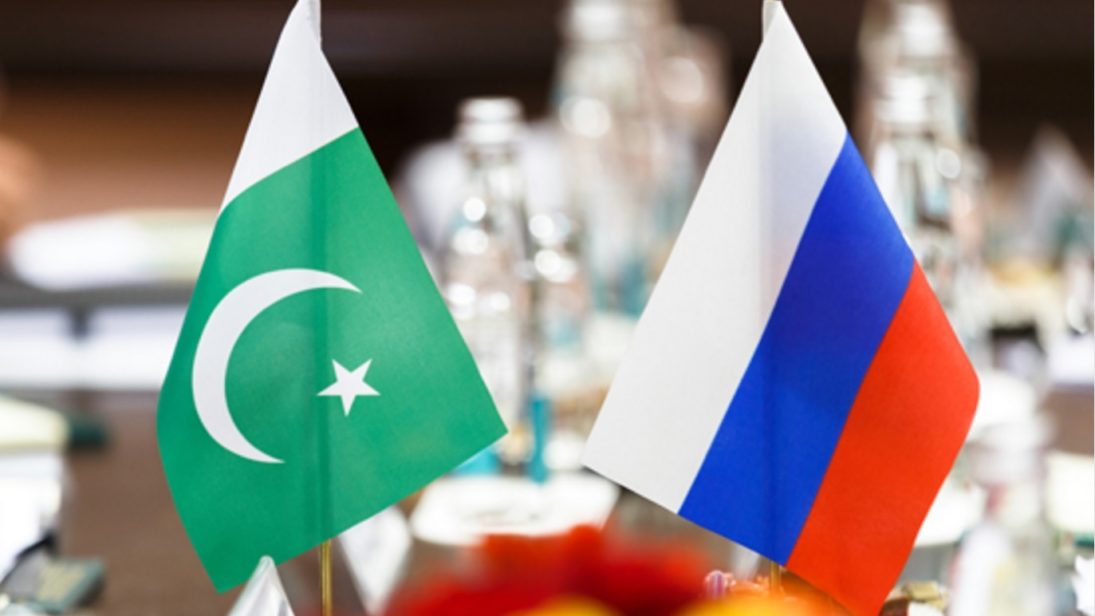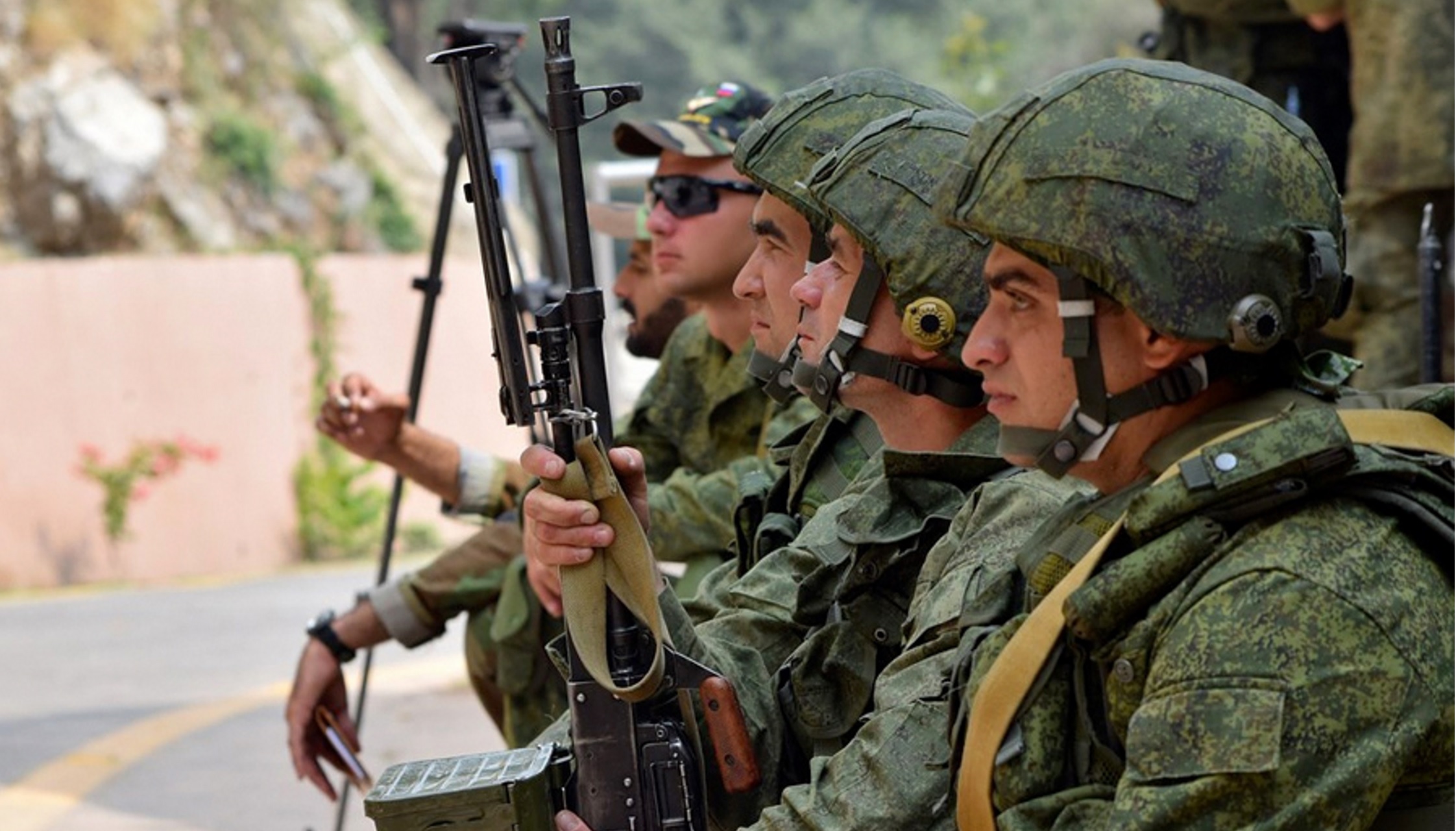
As one of the first countries to establish diplomatic relations with Pakistan and as an ally, the United States has been an almost permanent fixture of Pakistan’s foreign policy. Through most of its history, Pakistan has been pro America. However, the honeymoon seems to be over, especially after the death of Osama bin Laden. So, perhaps Pakistan’s recent move towards improving relations with Russia should not come as a surprise.
Geopolitical shifts have paved the way for a mutually beneficial relationship between Moscow and Islamabad. Russia wants to expand its sphere of influence across Eurasia in addition to challenging American hegemony in the region. Russia also considers Pakistan integral to its fight against ISIS. Additionally, Russia stands to benefit from the access to the Arabian Sea that the China-Pakistan Economic Corridor can provide. For Pakistan, the recent Indian military alignment with the United States has created an opportunity to strengthen defense ties with Russia. A budding relationship between Pakistan and a major power other than the United States also has the potential to enhance Pakistan’s weight in the international political arena.
Off to a Rocky Start
Since Pakistan was established in 1947, it was hesitant to establish close relations with the Soviet Union owing to ideological, geographical, and historical considerations. This became apparent early on when despite a formal invitation from the Soviet Union at the same time, Pakistan’s first prime minister chose to visit the United States instead.
While there was an effort to improve bilateral relations during periods of civilian government, Pakistan tilted towards America during military regimes. In the 1950s and 60s, Pakistan joined the Southeast Asia Treaty Organization (SEATO) and Central Treaty Organization (CENTO) alliances to counter communism and allowed the U.S. spy plane U-2 to use its air base in Peshawar to spy on the Soviet Union. Meanwhile, the Soviet Union provided India, Pakistan’s arch rival, with military assistance. By the time the 1971 Indo-Pak War took place, the Cold War relationships were so well-entrenched that the United States supported Pakistan while the Soviet Union sided with India. After the cessation of East Pakistan, Zulfiqar Ali Bhutto worked to improve relations with Russia through, for example, the Soviet construction of Pakistan Steel Mills. However, after the dismemberment of Bhutto’s government, the era of President Zia ul Haq brought the peak of adverse relations between Pakistan and Russia when both states became entangled with each other in Afghanistan.
A Recent Pivot
In the past, conflicting priorities and geopolitical realities prevented the Pakistan-Russia relationship from growing and strengthening. However, changing geopolitical circumstances have allowed for recent shifts in the foreign policies of regional actors. Over the last couple of years, Moscow has begun to look to expand its relations with Pakistan.
The convergence of interests between China, Russia, and Pakistan on the security situation and growing influence of ISIS in Afghanistan has driven Russia and Pakistan closer together. The three states excluded India from a trilateral meeting on Afghanistan last December, and New Delhi was quick to let its objection known to Moscow. India’s diplomatic efforts to convince Russia that Pakistan supports terrorism in the region have failed. Moscow views the Taliban as instrumental in countering ISIS in Afghanistan, and thus consider Pakistan’s role crucial in bringing peace to Afghanistan.

Growing defense ties between India and the United States as well as recent friction between India and Russia have opened up new opportunities for cooperation between Pakistan and Russia. Russia held joint military exercises with Pakistan for the first time, and although they could not compare with the large-scale and broad-based defense relationship between Russia and India, the exercises was held during the military standoff between Pakistan and India after the Uri incident. Russia also sold four Mi-35M helicopters to Pakistan. These developments reveal that as Russia moves away from its historic relationship with India, it has simultaneously warmed up to Pakistan.
Opportunities for Future Confluence
The economic power that CPEC has afforded Pakistan will allow it to achieve its political objectives and provide an opportunity for further improvement of ties with Russia. CPEC will be a key source of economic integration from the regional to the global level and provide land-locked states with access to the warm water of the Arabian Sea: something Russia has longed for. CPEC could provide Russia this opportunity, and reports suggest that Moscow and Islamabad are discussing the possibility of merging CPEC with the Eurasian Economic Union.
Apart from getting access to warm water, Russia can sell arms to Pakistan. Crippled by sanctions and facing competition in its biggest defense market (India), Russia is searching for new markets. Russia also needs Pakistan, with its crucial geopolitical location, to help stabilize Afghanistan, while Pakistan on its part believes that political stability in Afghanistan will improve its own internal security. Additionally, Russia could get closer to a thriving China through the strengthening of the Pakistan-China-Russia trilateral.
There is growing sentiment in Pakistan that it should re-frame and revise its relations with the international community in order to uphold its national interest. The enhancement of the mutually-beneficial Pakistan-Russia relationship is a key indication of this shift. For Pakistan, friendly relations with Russia can add to its weight in international politics and send strong signals to the United States that a new, strong partnership is forming. The advancement in security, energy, and economic ties between the two states proves that the bitterness of the Cold War has faded. To advance regional peace and prosperity, Pakistan must continue to diversify its foreign policy by building positive relationships with all the major powers of the world.
Editor’s note: In recent times, Russia has reached out to the Afghan Taliban, conducted its first ever military exercise with Pakistan, and drifted away from its traditional partner in the region, India. Our four-part series examines the significance of these events and whether they constitute a shift in Russia’s South Asia policy. This is part 2. Read the entire series here.
Click here to read this article in Urdu
***
Image 1: Ministry of Defence of the Russian Federation
Image 2: Russia-Pakistan joint military exercise, Ministry of Defence of the Russian Federation


